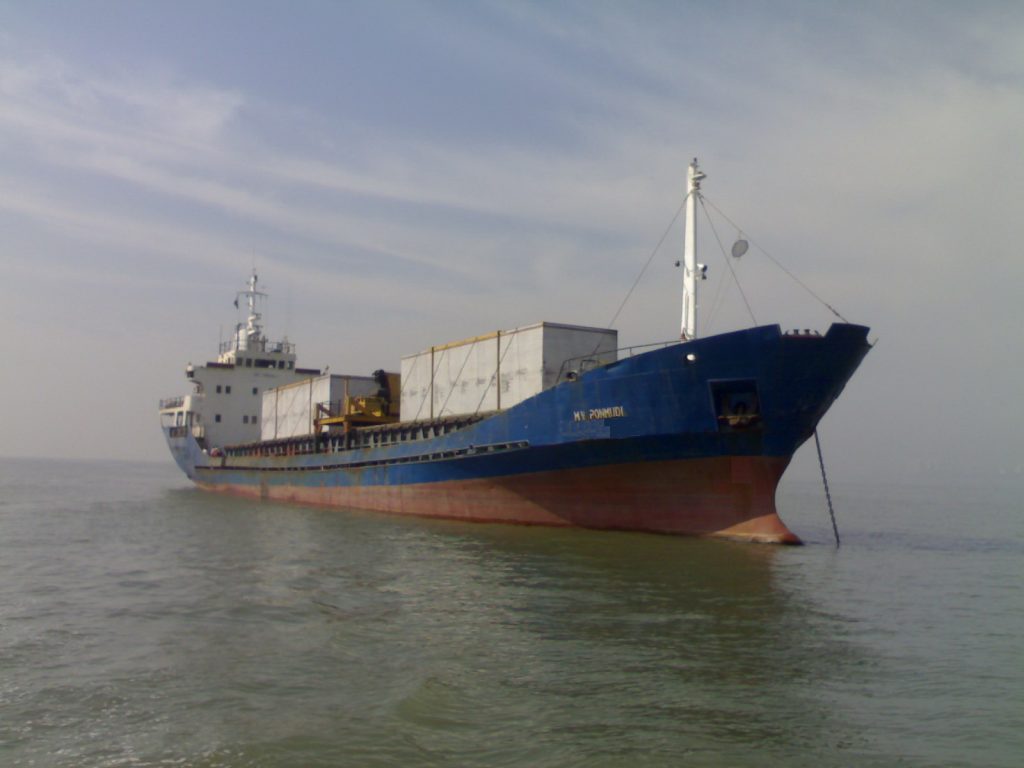Container Corporation of India Ltd (CONCOR) has eased the terms in a fresh tender to hire two container ships for 10 years to start coastal shipping operations, after two earlier attempts failed.
The state-run rail hauler of containers has removed the age limit and flag restrictions from the new tender, which states that the selected contractor should deploy two seaworthy coastal ships capable of carrying as much as 700 twenty-foot equivalent units or TEUs with maximum gross weight of 21,000 tonnes (cargo plus container weight).
The first tender had stipulated an age limit of 12 years and the second 15 years for the ships. Besides, only Indian flag ships were considered for the tender. Now, even foreign flag ships can be deployed.
Concor has retained the exclusivity clause in the new tender, to haul bulk/ break-bulk cargo and loaded and empty containers between Deendayal Port Trust (formerly Kandla Port Trust) in Gujarat and New Mangalore Port Trust, Cochin Port Trust and V O Chidambaranar Port Trust.
The successful bidder (including lead partner and other members in the case of joint venture/ consortium) will act as exclusive service providers for Concor. The successful bidder will have to sign a non-compete agreement that prohibits him from handling containerised cargo for other enterprises in Indian coastal waters. This was a vexed issue for potential bidders in the previous two tenders.
To work around this restriction, a ship operator can now create a special purpose vehicle (SPV) and participate in the tender. Concor has only stipulated that the successful contractor cannot do business in the same name on the coast. “The contractor should not do other domestic cargo; if he floats an SPV and totally dedicates to Concor, why should we bother,” a Concor official said.
Besides, in a bid to make the tender attractive to bidders, Concor has introduced the revenue share concept for containers/ non-containerised cargo loaded at the originating port (Deendayal Port Trust), which will be applicable only if the contractor deploys higher capacity ships.
The contractor will be permitted to carry other containers in excess of 700 TEUs and/ or bulk/ break-bulk cargo (both domestic as well as export-import containers) after 700 TEUs have been loaded by Concor. However, the contractor should do the extra bookings through Concor only.
Domestic container traffic movement shall be done in line with CONCOR tariff, while the contractor will be free to fix the tariff for non-containerised cargo and EXIM containers with the approval of Concor.
The sea voyage revenue (total revenue minus port handling charges and other cargo related charges) earned by carrying cargo/ containers in excess of the 700 TEUs capacity will be shared in the ratio of 10 per cent to Concor and 90 per cent to the contractor for domestic containers and 5 per cent to Concor and 95 per cent to the contractor for non-containerised cargo and EXIM containers, according to the terms of the tender.
However, if less than 700 TEUs with a gross weight less than 21,000 tonnes has been loaded by Concor, then the revenue share arrangement will be subject to certain conditions.
Any container or break-bulk cargo loaded en-route, that is, at New Mangalore to Cochin/ Tuticorin or from Cochin to Tuticorin and in the return direction (from Mangalore/Cochin/ Tuticorin to Kandla) by Concor/ contractor in the same vessel (either a vessel of 21,000 tonnes gross weight carrying capacity or of higher capacity) will also be eligible for the revenue share, subject to certain conditions.
Concor has also decided to revise (increase or decrease) the bunker adjustment factor (BAF) to account for changes in ship fuel prices on a monthly basis, compared to the six-monthly revisions proposed in the earlier tenders. “These changes were incorporated to promote coastal shipping,” said the Concor official.








